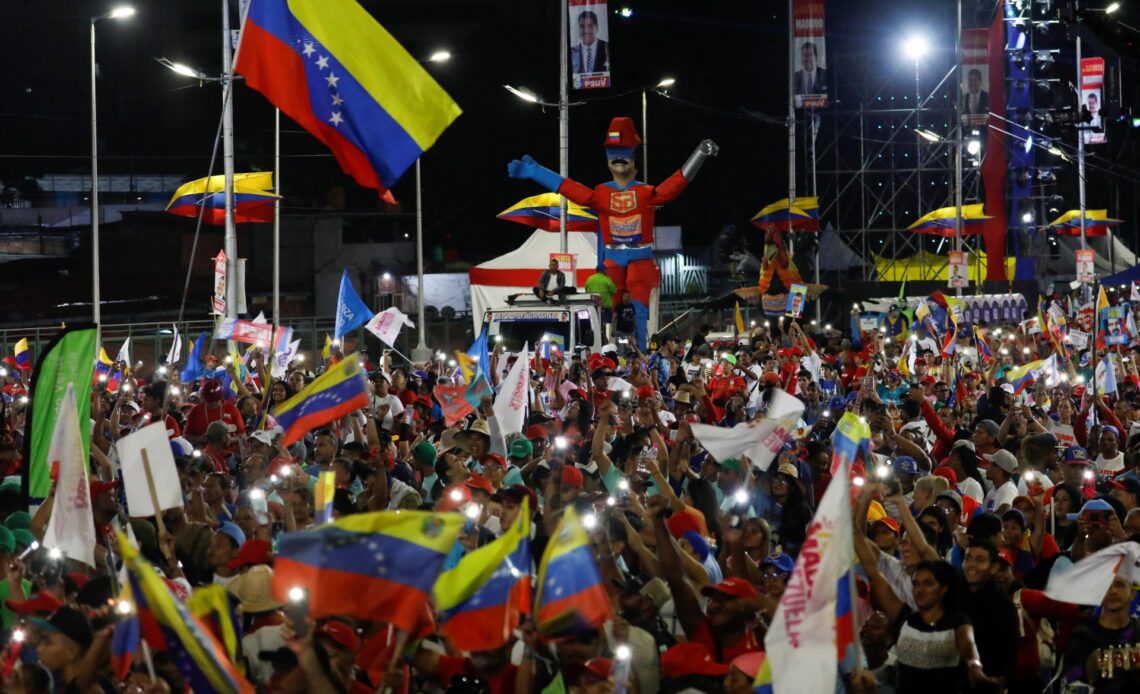“Life has been hard for years now. It’s true that food prices have come down recently, but they’re still so high,” says Rodrigo, a private security guard working in Caracas, Venezuela’s capital. He did not want to give his last name.
Amid a decades-long economic crisis, Rodrigo thinks that “people are ready for a change.” On Sunday, he will join 21 million people who are eligible to vote in picking the country’s next president.
The general election falls on the birthday of Hugo Chavez. While Chavez had a troubling record on human rights, the charismatic left-wing leader – who governed Venezuela from 1999 until his death in 2013 – was celebrated as a champion of the poor.
His less popular successor, Nicolas Maduro, is now up against opposition candidate Edmundo Gonzalez Urrutia, a retired diplomat. And polls show Gonzalez leading by a wide margin.
But Maduro has a knack for clinging to power. Most opposition parties boycotted his re-election in 2018, arguing the poll was neither free nor fair. In January, Maduro banned his main rival, Maria Corina Machado, from running.
While accusations of government interference have marred elections in Venezuela for decades, Maduro has said that he will recognise the result of Sunday’s ballot.
“I’m not sure what will happen next Monday. There’s talk of things getting violent. But even if Gonzalez wins,” Rodrigo acknowledged, “I’m not sure he can transform the country like Chavez did.”
During his tenure, Chavez successfully used high oil prices – the lifeblood of Venezuela’s economy – to double Venezuela’s GDP per capita. Welfare programmes were expanded and poverty and unemployment fell.
Maduro has not been so lucky. Now in his 11th year in office, he has overseen an economic meltdown. Since 2014, output has contracted by 70 percent, more than twice the hit the United States suffered during the Great Depression.
Over that period, some 7.7 million Venezuelans – a quarter of the population – have left the country in search of work.
In 2022, the IMF described Venezuela’s state of disorder as “the single largest economic collapse for a non-conflict country in half a century”.
Government critics see the country’s downward spiral as a result of corruption.
For his part, Maduro blames Venezuela’s plight on crippling US-led sanctions, imposed with increasing degrees of severity since 2005. He is not alone. Several commentators have decried the measures as illegal and…

